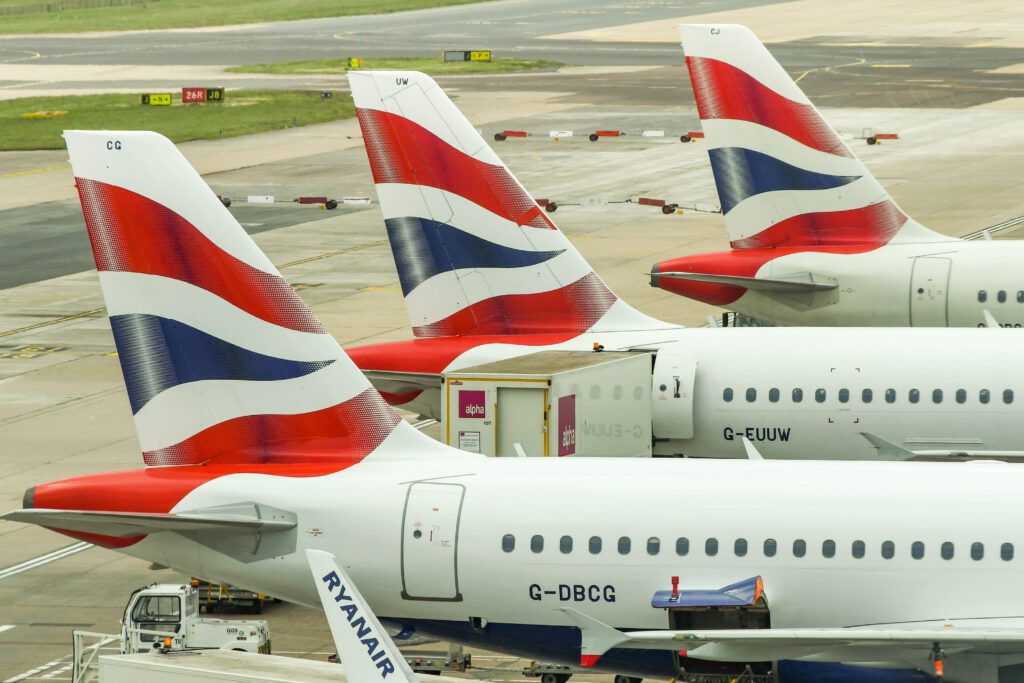British Airways is poised to undercut rival airlines on long-haul fares after securing sustainable aviation fuel (SAF) at a significant discount — a move it claims will give customers a smoother and more affordable ride on the path to net zero.
The UK flag carrier’s parent company, International Airlines Group (IAG), has invested $3.5 billion (£2.6 billion) into long-term SAF contracts that secure supply for up to 14 years — and at prices that are more than 40 per cent below the current market rate, according to internal briefings.
The strategy, described by IAG as a “competitive advantage,” marks a high-stakes bet on SAF as the aviation industry comes under mounting pressure to decarbonise. Global regulators are mandating minimum SAF usage — rules that are set to increase significantly over the next decade — and many carriers are warning of looming fare hikes to fund the shift.
German airline Lufthansa has already introduced a €72-per-ticket SAF surcharge, while Virgin Atlantic now adds £24 to the cost of a flight to help cover greener fuel requirements. Virgin CEO Shai Weiss has warned that round-trip fares to destinations like New York could increase by £40 per person as mandates grow.
British Airways, by contrast, is signalling that its customers may avoid some of those extra costs. Through IAG, the airline has signed a number of “take or pay” contracts with SAF suppliers — agreements that guarantee payment even if fuel is not delivered, providing crucial revenue certainty that enables producers to raise financing and scale.
For IAG, which includes BA, Iberia, Aer Lingus and Vueling, that certainty translates to cheaper fuel. The group told investors that it is now paying less than 60 per cent of the current market rate for SAF.
“This gives us a significant competitive advantage,” said Jonathon Counsell, head of sustainability at IAG. “We moved early, and now we’re seeing the benefit of that decision as the market tightens and prices remain volatile.”
The UK government has mandated that 2 per cent of jet fuel must be SAF in 2025, rising to 10 per cent by 2030 and 22 per cent by 2040. The European Union has laid out a similar timeline, with a 2 per cent threshold this year rising to 6 per cent by 2030 and 34 per cent by 2040.
Although SAF still costs between two and seven times more than traditional kerosene, it is regarded as one of the most immediate ways to cut aviation emissions. Most commercial SAF is currently produced from used cooking oil or agricultural waste, with more experimental variants made using carbon capture and green hydrogen.
Analysts say IAG’s strategy is not likely to bring down fares in the long term, but it may allow BA to keep prices steady while others are forced to raise theirs.
“Fuel is the single biggest cost for most airlines,” one analyst said. “Locking in SAF at below-market prices won’t make it cheap, but it might mean BA doesn’t have to slap on a surcharge every time the SAF mandate ticks up.”
Last year, IAG’s fuel bill came to €7.6 billion, followed by €6.4 billion in employee costs. Any ability to stabilise or reduce fuel expenses will significantly improve the group’s margin flexibility.
IAG also sees the rising SAF mandates as a potential barrier to entry for new low-cost rivals. “It’s hard to launch an airline when your fuel costs are going through the roof,” one executive said privately. The group believes this could spur industry consolidation in the coming years, with fewer new entrants and more merger opportunities.
Despite these ambitions, analysts at RBC said IAG does not expect significant near-term merger activity but is well-positioned when the market turns.
For now, British Airways’ SAF advantage could help it win customers and goodwill — offering flyers a greener choice without the green surcharge.


